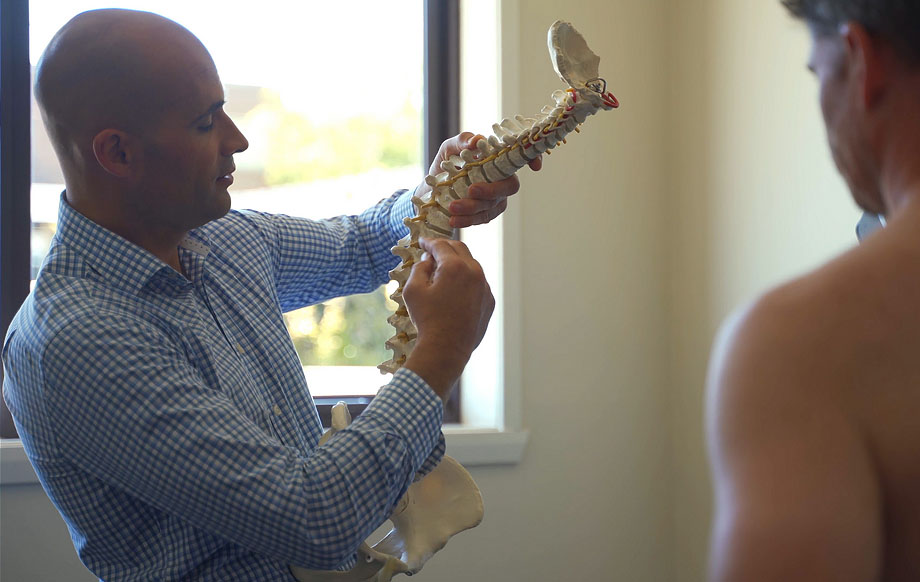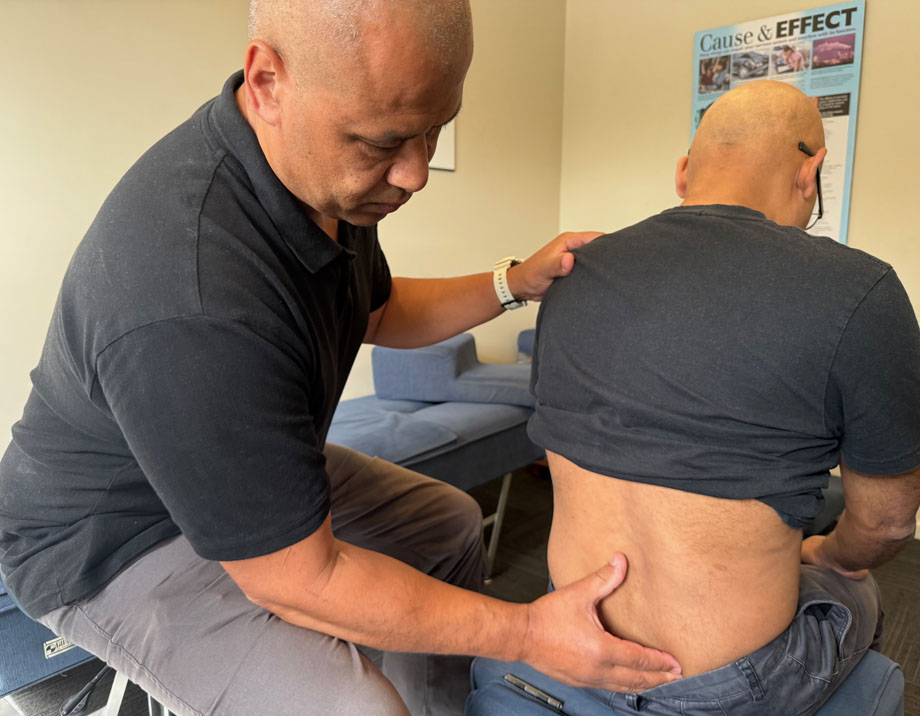Premier Melbourne Chiropractors
✓ Onsite Parking ✓ Wheelchair Access ✓ X-Ray - 424 Blackburn Rd, Glen Waverley VIC 3150
✓ Onsite Parking ✓ Wheelchair Access ✓ X-Ray
424 Blackburn Rd, Glen Waverley
Bulged And Herniated Disc
Melbourne Disc Herniation Chiropractors | Bulged Disc Diagnosis, Management And Herniated Disc Treatment Options
What Is A Bulged Or Herniated Disc?
A bulged or herniated disc occurs when the soft, gel-like center of a spinal disc pushes through a crack in the tougher exterior casing. These spinal discs act as cushions between the vertebrae in your spine, allowing for flexibility and shock absorption. When a disc bulges or ruptures, it can press on nearby nerves, causing pain, numbness, or weakness in the affected area. While some people may have a bulged disc without noticeable symptoms, others may experience significant discomfort, typically in the lower back, neck, or along the path of the compressed nerve.
This page has all the information you need to further understand what you may be experiencing. We go through symptoms, causes, the diagnostic process as well as the chiropractic treatment options available for anyone with a disc herniation.
Herniated Disc Causes
One of the primary causes of this condition is the natural aging process. Over time, the spinal discs lose some of their water content, making them less flexible and more prone to tearing or rupturing under even minor stress or strain. This degeneration is a normal part of getting older, but it increases the likelihood of a disc herniation as the spine becomes less resilient. Another common cause of a herniated disc is sudden strain or injury. Lifting heavy objects improperly or with poor posture can put significant pressure on the spine, leading to excessive force on the discs.
Activities that involve twisting or turning the body forcefully can also cause the outer layer of a disc to crack, allowing the inner material to protrude. Even minor incidents, such as bending over awkwardly, may result in a herniated disc, especially if the spinal discs are already weakened.

Certain risk factors can also increase the chances of developing a herniated disc. Physical activities that involve repetitive motions such as labour intensive jobs or impact sports, can place ongoing stress on the spine, heightening the risk. Another risk is being overweight, as this adds extra strain on the spine, particularly in the lower back area. Genetics may also play a role, as some individuals have a predisposition to spinal conditions that make them more susceptible to bulged or herniated discs.
Symptoms Of A Bulged Or Herniated Disc
While it's a frequent cause of back pain, not everyone who has a bulged or herniated disc will experience symptoms. The presence and severity of symptoms often depend on the location of the affected disc and whether it presses on any nearby nerves. This condition is most commonly found in the lower back (lumbar spine), although it can also occur in the neck (cervical spine). When a disc becomes herniated, it may lead to irritation of surrounding nerves or tissues, potentially causing discomfort or dysfunction. However, it’s important to note that some individuals may have a herniated disc without significant discomfort or noticeable problems. The degree to which symptoms manifest often varies greatly from person to person.
Understanding the general characteristics of a bulged or herniated disc can help individuals better recognise potential issues and seek appropriate care if needed. Here is a list of common bulged disc symptoms with a brief explanation of each:
Localised pain: The most common symptom of a bulged or herniated disc is localised pain in the affected area. This pain may be dull, sharp, achy, or throbbing and can range from mild to severe. In some cases, the pain may radiate down into other parts of the body such as the legs for lower back disc issues or arms for neck disc issues.
Numbness or tingling: When a herniated disc presses on a nerve, it can disrupt normal sensation and lead to numbness or tingling in certain areas of the body. This sensation may be described as pins and needles or a feeling of “falling asleep”.
Muscle weakness: In addition to affecting sensation, a ruptured disc can also impair muscle function. This may result in weakness or difficulty with certain movements and activities. For example, a person with a herniated disc in their lower back may have trouble walking or standing for extended periods of time.
Bowel or bladder problems: In rare cases, a herniated disc in the lumbar spine can put pressure on the nerves that control bowel and bladder function. This can lead to issues such as difficulty with urination or bowel movements, loss of bladder or bowel control, or tingling/numbness around the genital area. If you experience these symptoms along with back pain, seek medical attention immediately.
Reduced Mobility: Some individuals may experience limited mobility or stiffness in their back or neck due to a bulged or herniated disc. This can make it difficult to perform daily tasks and activities, leading to decreased quality of life.
It's important to note that these symptoms are not exclusive to bulged or herniated discs and can also be caused by other spinal conditions. If you are experiencing any of these symptoms, you may consult with one of our Doctors at your convenience.
Diagnosing A Disc Rupture

Diagnosing a disc rupture begins with understanding the patient's symptoms as we mentioned earlier. A thorough medical history is an essential first step in identifying a herniated disc. Your chiropractor will inquire about the onset of symptoms, their severity, and whether any activities or injuries preceded the discomfort. This helps to determine if there are any patterns or triggers associated with the patient's pain. Understanding past medical conditions and lifestyle factors can provide valuable context for identifying potential disc issues.
Once symptoms are recognised and a history taken, the chiropractor will carry out a physical examination. During this examination, the doctor will look for any weakness in muscle strength, sensation loss or reflexes.
A common test used to diagnose disc herniation is the Straight Leg Raise Test. This test involves raising each leg while keeping it straight. If pain occurs before reaching an angle of 30-70 degrees, it could indicate a problem with a nerve root and possible disc rupture. Another commonly used diagnostic tool is the Spurling's Test which involves tilting the head back and turning it to one side to assess for any pain or discomfort.
Depending on the findings, imaging studies like X-Ray, MRI or CT scans can be used to visualise the spine, confirming the location and extent of the herniation for accurate diagnosis. These tests can also help rule out other possible causes of back pain, such as spinal stenosis or spondylolisthesis.
It is important to note that while imaging studies can provide valuable information, they should not be solely relied upon for diagnosis. The patient's medical history and physical examination are crucial components in accurately diagnosing a herniated disc. Early diagnosis allows for prompt treatment which can help improve symptoms and prevent further damage to the spine.
Herniated Disc Treatment
A herniated disc can cause significant discomfort and restrict your daily activities, but there are non-invasive treatment options available that may provide relief. Chiropractors specialise in techniques designed to alleviate the pressure on the nerves and improve spinal alignment, which can reduce symptoms and support the healing of the injured disc. Understanding these methods can empower patients to take control of their recovery.
One of the primary treatments we deliver is spinal manipulation, a core chiropractic practice. This technique involves gentle adjustments aimed at restoring proper spinal alignment. By doing so, the pressure on the affected nerves caused by the herniated disc can be reduced, leading to a decrease in pain and inflammation. Spinal manipulation is precise and tailored to each patient’s condition, supporting the body’s natural healing process.
We often prescribe customised stretches and strengthening routines to help restore mobility, enhance flexibility, and prevent further injuries. All of this depends on the severity of the diagnosis which will determine the treatment plan. Following specific stretches depending on the location or your herniated disc, we would incorporate therapeutic exercises designed to strengthen the muscles surrounding the spine. These exercises are crucial for improving stabilisation and reducing strain on the affected disc. Consistent practice of these exercises will contribute towards keeping symptoms at bay and long term spinal health.
Lifestyle changes also play a role in managing a herniated disc. Poor posture and repetitive movements can aggravate the injury, making adjustments in daily habits essential. Our Doctors will provide guidance on proper posture, ergonomics, and movement strategies, helping patients protect their spine during everyday activities. Making regular low impact activities, like walking or swimming, part of your routine can further enhance recovery.
Finally, our chiropractors often utilise complementary therapies such as heat and cold therapy to promote pain relief and relaxation. These therapies can help reduce muscle tension and promote circulation, creating an optimal environment for the body to heal. By combining these methods with adjustments and exercises, patients may achieve better outcomes and experience lasting relief from herniated disc symptoms.
In addition to these non-invasive treatment options, there are also surgical interventions available for severe cases of a herniated disc. However, chiropractic care should always be considered as a first-line treatment before resorting to surgery. It is essential to consult with one of our healthcare professionals and discuss all options thoroughly before making any decisions.
Overall, understanding the various treatments available for a bulged disc can help patients make informed decisions about their health and recovery. By working closely with a chiropractor and following prescribed treatments and lifestyle changes, individuals can manage their symptoms successfully and improve their quality of life.
Recovery And Prevention For A Herniated Disc
Recovering from a herniated disc requires dedication to building healthy habits that support the spine. Proper posture is crucial in reducing strain on the back and preventing further injury. Ensuring that the spine is aligned while sitting, standing, and even sleeping can help create an environment where the body can heal. Small adjustments in daily activities, such as keeping feet flat on the floor while sitting or avoiding slouching, can make a significant difference over time.
An essential component of recovery is staying active in a way that promotes spinal health. Regular movement encourages blood flow, which helps deliver vital nutrients to tissues. Stability and flexibility exercises also help create a strong foundation for the back, making it more resilient to future strain. Maintaining a healthy weight is another key element for recovery and prevention. Excess weight places additional pressure on the spinal discs and surrounding structures, increasing the risk of discomfort and further injury. A balanced diet rich in nutrients not only supports weight management but also provides the body with the building blocks needed for healing. Making informed food choices and staying hydrated are simple yet effective practices to encourage spine health.
Regular exercise, ergonomic adjustments in workspaces, and listening to your body’s signals can collectively create a lifestyle that prioritises spinal health. Prevention is an ongoing process, and small, mindful changes can reduce the likelihood of future flare-ups. Dedicating time and effort to maintaining a healthy back leads to greater comfort and mobility for years to come.
How To Recognise When A Bulged Disc Needs Immediate Attention
A bulged/herniated disc can sometimes be difficult to identify, but understanding specific warning signs can be crucial to addressing potential health concerns. One primary indicator to look out for is persistent back pain that interferes with daily activities. While occasional discomfort may be common, intense or recurring pain may signal a need for further consideration. Being mindful of how frequently the discomfort occurs and whether it worsens with specific movements can help assess the severity of the situation.
Another notable sign to watch for is unexplained weakness in the muscles, particularly in the arms or legs. Muscle weakness, combined with difficulties in performing routine tasks or a noticeable loss of coordination, can point toward an underlying issue that requires attention. Also sensations such as numbness, tingling, or a pins and needles feeling radiating from the back to the extremities may also warrant a closer look. These symptoms often indicate potential nerve involvement, so being vigilant about their presence is important.
Certain situations demand evaluation without delay. For instance, if back pain accompanies a loss of control over bladder or bowel functions, it may be a signal that immediate medical care is necessary. Similarly, pain that spreads into both legs or creates a severe feeling of heaviness should raise concern. Recognising these red flags as early as possible ensures that the right steps can be taken to prioritise your health.
Bulged Disc Relief From A Chiropractor Near You
If you’re experiencing discomfort or pain from a bulged disc, know that relief is within reach. Chiropractors specialise in non-invasive and targeted treatments that address your discomfort. We can develop a personalised care plan designed to alleviate pressure and improve mobility. Seeking chiropractic care is the first thing people should do to try and sort the issue out before making a drastic decision such as surgery. We offer a natural alternative to surgery or heavy medication, focusing on helping your body heal itself over time. With adjustments tailored to your needs, chiropractic herniated disc treatments can provide effective relief while supporting your spine's alignment and health.
Our experienced bulged disc Doctors are ready to help you address your condition and guide you on the path to recovery. Don’t let pain hold you back any longer—schedule your consultation and start your healing journey now!

Curious how Chiropractic helps a herniated disc?
